What makes you funny, and how do you get there?
I mean, it is probably one of the biggest parts of me and my friend’s conversations, and I feel like I’m terrible at contributing.
-Elena
Elena isn’t the only one with this question. A lot of people want to be more funny.
What you’ll learn in this guide
- First, we’ll talk about types of humor and specific things you can say.
- Then, we’ll cover how to relax and be more fun in general.
- Lastly, I talk about types of humor to avoid.
Chapter 1: Types of humor and specific things to say that are funny
1. When someone says something people laugh at, think about WHY it was funny
Analyze other’s jokes. And even more important: When you say something people laugh at, analyze what you said and the way you said it.
- Was it the timing? (When you said it).
- Was it the tone you said it with? (Was the tone happy, sarcastic, angry, etc.)
- Was it the expression on your face? (Was it strained, relaxed, emotional, blank, etc.)
- Was it the body language? (Open, closed, what was your pose, etc.)
Compare what you said to other times you got laughs. When you find patterns, you can use that pattern to come up with more successful jokes in the future.
Below, we are going to look at different types of humor.
2. Canned jokes are seldom funny
Canned jokes (the ones you read in “funny jokes-lists”) are, ironically, seldom funny.
What’s truly funny is the unexpected comment about the very situation you’re in.
OR – a story related to the situation about something unexpected you experienced.
Canned jokes can have a place if you share funny stories with each other. But there’s another problem with those jokes:
They don’t make YOU come off as funny. To be seen as funny, you want to comment on what’s funny in the very situation you’re in.
3. Misreading a situation on purpose is often funny
I was at a birthday party a few days ago, and we were divided into three groups.
We played games where we competed against each other, and out of the three groups, my group had hands-down the worst results.
I remarked, “Well, at least we got third place,” and the table laughed.
People laughed because I misread the situation on purpose by acting as though the third place was a good thing when really, third place was the last place.
How to use:
What comment can you make about a situation that, to everyone, would be an obvious misunderstanding?
4. Comment on a situation in an obviously sarcastic way
During the hale storm: “Ahh, nothing’s refreshing like a breeze.”
Sarcasm can quickly get old and make you come off as a cynical person. Don’t make it your only form of humor.
How to use:
What’s an overly positive response to a negative situation? Or, what’s an overly negative response to a positive situation?
5. Tell awkward stories people can see themselves in
People tend to appreciate stories that they can relate to.
Say that you mention that you fixed your hair in a store window, and then you suddenly make eye contact with someone on the other side of the window.
Because many have experienced this situation, it becomes more relatable and funnier.
How to use:
Know that awkward stories are a safe bet if the audience can relate to them.
6. Bring up unexpected contrasts
A friend, standing in his kitchen, said:
When I think about how the universe will cool down in billions of years and the only thing remaining will be weak radiation, it feels demotivating to fold the cartons before you recycle them.
This is funny because there’s a contrast between the end of the universe and folding cartons.
How to use:
What’s the very opposite of the subject you’re talking about or the situation you’re in? Humor is often based on unexpected contrasts.
7. Say something obviously wrong
You’re in a hurry with your friends to head out, and you just need to run to the bathroom while they put on their shoes. You say, “I’ll be right back, I’m just going to take a quick bath.”
It’s funny because it’s obvious that it’s the wrong thing to do. Why is it funny? There’s a microsecond of disconnect and then a release when they realize that you’re joking.[1,2]
How to use:
Saying something that is so obviously wrong that it can’t be mistaken for being serious is usually funny.
8. Turn something someone said into a catchphrase
A friend and I saw an interview where the interviewee said at one point, “It’s fun to a certain degree,” in a particular accent.
This soon became a catchphrase, using the same accent worded in different forms.
How was the movie? “It was good to a certain degree.” How was it at your parent’s place? “It was nice to a certain degree.” How was the food? “It was tasty to a certain degree.”
This is an example of an inside joke catchphrase.
How to use:
If someone says something the group reacts to (or if you watched a movie together and a character said something memorable) that phrase can be applied to completely different situations. Don’t over-use. (As it only gets fun to a certain degree).
9. Point out comedic truths about a situation
My father, an artist, once said that he was happy that I didn’t follow his tracks and become an artist as the career is so unsafe.
My friend realized that my life as an entrepreneur has been just as unsafe:
“What a relief to him that you became an entrepreneur instead.”
This made us laugh because he picked up on the truth of the situation[3]: Being an entrepreneur is just as insecure as being an artist.
How to use
If you see a clear truth about a situation that isn’t clear to others, a simple, factual comment on it can in itself be funny. Don’t bring up truths that make people sad, upset, or embarrassed.
10. When you tell stories, make sure there’s a twist at the end
My friend once told me how he woke up for school one day being so tired that he could barely get out of bed.
But he still made coffee, made breakfast, and got dressed. He puked a little. Then he realized that it was 1:30 in the morning.
The story was funny because there was a plot twist at the very end.
If he’d started the story by saying that he woke up at 1:30 but thought it was 8 AM, there would be no unexpected twist, and the story wouldn’t be funny.
Read more: How to be good at telling stories.
How to use
If something unexpected happens in your life, that can make for a good story. Make sure to reveal the unexpected part by the very end of the story.
11. How you say it is as important as what you say
Some focus too much on what to say and not how they say it.
The way you deliver the joke is as important as what you actually say.
Ever heard someone say about a comedian, “It doesn’t matter what he/she says, it’s always funny.” It’s because of the voice he or she uses when they say it.
Sometimes, a blank, emotionless voice can even make the punchline stronger because it’s more unexpected.
How to use:
When you see friends or comedians pull jokes that get a good reaction, pay attention to HOW they say the joke. What can you learn from the delivery?
12. Instead of pulling jokes to get laughs, say the things you laugh at yourself
In comedy classes and speaking classes, they have a rule: “You don’t have to be funny”.[4,5]
It means that you don’t want to come off as a jokester or someone who TRIES to be funny. It can come off as needy or try-hard.
A test is to ask if YOU would laugh if someone else had pulled the joke you want to pull. That’s a better motivator than trying to get laughs.
Humor is about presenting life’s absurdities in a way that makes everyone see that it’s hilarious for themselves.
13. See what humor style you have
There are a lot of different types of humor patterns. Everyone’s sense of humor is unique, but chances are you fall more within some categories of humor than you do into others.
Finding out your style of humor can help you determine what humor patterns to focus on as you work on becoming funnier around your friends.
Take this What’s Your Humor Style? Quiz to learn more about the type of humor that naturally comes to you.
Chapter 2: How to be more relaxed and funny

49.7% of single men and 58.1% of single women say humor in a partner is a dealbreaker.[12]
14. You don’t have to be witty or good at banter to be likable
Jokes can help you bond, but they aren’t a deal-breaker when it comes to being likable.[6,7]
You don’t have to be funny in conversations to be fun to hang out with. Maybe you’ve even noticed how people who try too hard to be funny become less fun to hang out with.
It’s not a coincidence that the main characters in many movies AREN’T jokesters – they are likable in other, often more effective ways.
Being “the funny one” isn’t the only thing that can make you attractive or enjoyable to spend time with.
If being funny just isn’t your thing and you don’t want to make yourself do something you don’t enjoy, then don’t force it.
However, being able to relax and be easygoing is more important than being able to pull jokes. Here’s some advice on how to be more fun to be around.
15. If you feel stiff, practice mindsets to take the situation less seriously
Sometimes, we think, “I need to be great socially here, or people will think that I’m weird,” or “I need to make one new friend here for this to not be a failure.”
That puts pressure on us, which can make us stiff.
Instead, it can help to see socializing as a playground where you practice for the future.
The purpose of social settings doesn’t have to be to perform flawlessly. The purpose can be to test what works so that you can be better in the future.
Thinking this way can help us take the situation less seriously.
16. Ask yourself what a confident person would have done
Often, the reason we feel stiff and nervous is that we’re overly worried that we’ll make social mistakes.[8]
However, to improve socially we need to try new things and make mistakes to learn what works and what doesn’t.
In reality, confident people make as many mistakes, it’s just that they don’t care about it. It can help to ask yourself what a confident person would think if they made the mistake you just did.
Often, we conclude that they wouldn’t care. This can help us dare to try new things in social settings.
17. Try improv theater might help
Improv theater is all about improvisation and finding humor in the moment.[9] Therefore, it can help to learn to practice how to be witty.
You can search for “improv theater [your city]” on Google to find local classes.
18. To become a quicker thinker, walk around the room and practice saying the name of objects
This is an exercise to speed up your speaking abilities. Walk around the room and name everything you see. “Table,” “lamp,” “iPhone.” See how fast you can do it. If you do this every day for 1-2 weeks, you will improve the speed that you’re able to recollect words.[10]
You can also mislabel each item (calling the table a lamp, etc). This creates other neural pathways that help you improvise faster.
19. Watch stand-up and comedy shows to reflect on WHY the funny parts are funny
Whenever the audience laughs, pause the video and ask yourself why that joke was funny. Can you find patterns?
20. If you’re telling a funny, outrageous story, it’s often funnier if you tell it in a low-key way
If you tell a story in an excited voice with a grin on your face, that can come off as if you’re trying to get laughs. This often makes it less funny.
Instead, let the joke be funny in itself. Humor is often about the unexpected. If people aren’t certain what will happen next (If there will be a joke or what will happen), the reaction to the twist is often more explosive.
21. Don’t try to be funny all the time
One or two jokes during a night are enough to be seen as a funny, humorous person. But if people start expecting that everything you say is funny, you might instead come off as try-hard or needy.
22. Different people like different humor, so you can’t use the same humor in all situations
A joke can be hilarious for some and fall flat for others. See what type of humor works in what friend groups by observing friends successful jokes.
23. If you get stuck in your head trying to chase fun things to say, it can help to instead observe the situation and let thoughts come to you
Humor is often situational. It means that a quick comment about the absurdity of a situation is more fun than cracking an unrelated joke.
However, being in your head trying to chase funny things to say makes it even harder to pick up on the situation.
Focus on being present in the situation. You can do that by bringing your attention back to what’s happening around you when you notice that you get stuck in your thoughts.
Type of humor to avoid
Being funny can make you more relatable. But using offensive humor can make you less relatable.
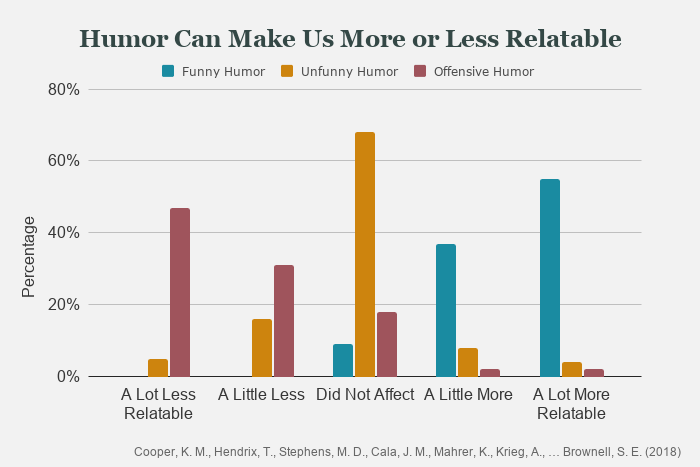
Students found instructors using funny humor to be more relatable, but instructors using offensive humor to be less relatable.[11]
There are some types of humor that you want to use with caution; some people use their sense of humor in a way that is harmful to both themselves and the people around them.
1. Put-Down Humor
One of these detrimental types of humor is that of making fun of someone else– also known as put-down humor. Laughter is commonly referred to as the cheapest medicine, but laughter at the expense of another person is not free– its asking price is the dignity and value of the person who is serving as the butt of the joke.
Making fun of someone can be hilarious once, not so funny twice, and is closing in on bullying thrice.
As a rule of thumb, I make it a goal for people to leave conversations with me feeling like a better person.
I try to give others value. It makes us both feel good. It’s an easy win-win.
Making fun of someone else takes away their value, making them feel worse about themselves as a result of your relationship. Lose-lose. Do not make it a habit of being funny at someone else’s expense.
Explains Dobson in her article, put-down humor is an “aggressive type of humor…used to criticize and manipulate others through teasing, sarcasm, and ridicule. . . Put-down humor is a socially acceptable way to deploy aggression and make others look bad, so you look good.”
In other words, put-down humor is a form of bullying that does just as much harm as more blatant forms of verbal aggression.
2. Self-Deprecation
Referred to by Dobson as “hate-me humor,” this is the type of humor in which people put themselves at the center of the joke. While it can often be funny and isn’t always a bad thing, it’s important to use this type of humor with a measure of caution.
“Routinely offering yourself up to be humiliated erodes your self-respect, fostering depression and anxiety. It can also backfire by making other people feel uncomfortable,” she says in her article.
As a rule of thumb, don’t make self-deprecating jokes about something you are actually insecure about.



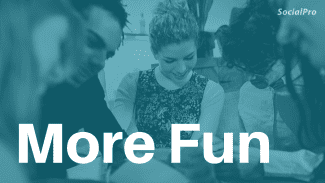
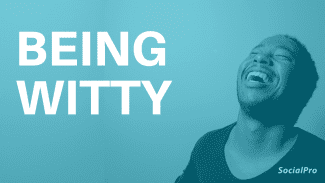
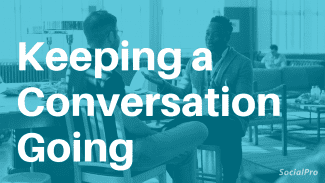

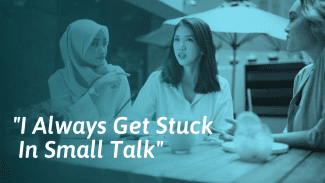




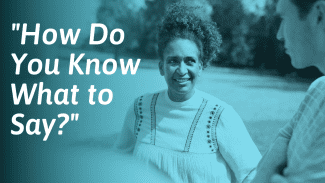
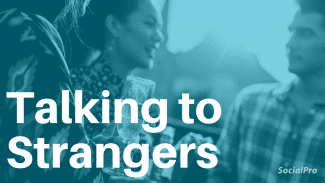
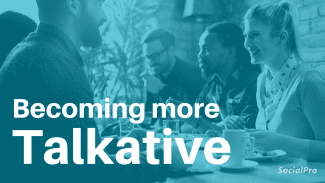
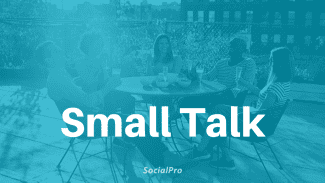

WEE whooo here goes; time to shake off my arthritic humor. lol. This is it goodbye Mrs. Snoozer, today I will jump the waves riding a bull. Hmm, how was that? Well, a little background music might help… so I am a decent-looking nursing student with the personality of a goldfish. I know the names of way too many chemical elements, had a cat named mouse that ran away to the neighbor’s house, drive an implant faster than a hot rod, and my stiff lectures wiggle bobbleheads to sleep faster than injectable butts inflate.
Sincerely, Never give up!
Useful!!!.
The tips are amazing, I mean, after it tells you the use of many types of jokes, it tells you when and how top use em…
It was very helpful… Thank you sir ?
I seem to always make awkward jokes because I love to laugh and want to be funny so badly. I say inappropriate things whenever I try though (specifically with my in-laws and at work). How can I develop a filter? When I do make a joke, people usually pity laugh (except my friends who laugh hysterically.)
SuGe if u want to filter ur jokes try not making ir so evident that ur about to say something that wont sound……..right. hope this helped!
What’s a good way to try to be funny in a group conversation how does it all work does it usually mean it just happens naturally without even trying how did you learn how to be funny in groups with friends and how did you meet your friends how does someone learn to keep a conversation going I feel when I talk to other people or when someone talks to me I feel like their talking a lot more than Iam I feel like I say yeah oh wow yeah that’s cool when they talk to me I feel I should be saying more than just that what else should I say besides that what are people into these days with the social life
It’s great. It was told “A witty Fool is better than a foolish wit. Jokes may not get cracked when they are not targeted correctly and instantly to the situation. It is really a gift and an art, which I did n’t have.
Hi David,
Thanks for your email. I do believe that be funny is something that we can learn. I guess my problem it I am trying to hard to be funny. Some people can just do it naturally. I think your approach to being funny seems to be a little bit over-analyzing the social situation. Is there a way to be funny by nature?
Not David, but I researched this with him. I think there may be three things which you may benefit from most to become more naturally funny. First is the most obvious we mentioned in the article, try to relax a bit more. Allow yourself to mess up. With each try you will learn something and become better. If this doesn’t fit your situation, my third tip might be of more use to you.
Second, research storytelling and try to become better at it. Through that you will learn how to naturally capture peoples attention and also what makes them laugh. We linked two videos in the article, check them out!
Third, try less. Since you said your problem may be that you try too hard. Maybe you just need to stop trying to be funny. When you try too hard, you automatically become less natural. It shines through. When you stop trying, you might even notice how you get more inspired and say more fun things. My first challenge for you would be to try to be “just you” for 15-60 minutes when you are with friends. Every time you try to be funny, stop yourself. Just take note of how that makes you feel and behave. Then after that you can try to gradually start joking around a bit more until you find a natural balance that works for you. That way you will be able to stop your “bad” behaviors and just keep doing your good behaviors that are naturally funny. It will be a gradual process, but with your new insights I think you will be amazed by what you learn about yourself.
Best of luck, Duke!
When we tell jokes it gives us knowledge and to learn what other people might say after that. To be honest when I tell jokes I go too far, but before I speak I think and I think again so I will understand the words that I’m about to say. Some people find it really funny and it makes me wanna laugh. I just don’t want to say it and the words that is coming out of my mouth is not funny. Sometimes when I do say it without thinking they all know that I wasn’t me not thinking so they laugh. When u tell joke it makes u laugh like it is speechless like their was nothing left to say at all
Thank you for writing this David! Ill watch that ted talk later, seems really interesting. I think my biggest problem is that im so afraid to mess up. So this made me feel a bit better. I will try to relax a bit more from now on!
That seems like a good start Carol! Let us know how it goes 🙂